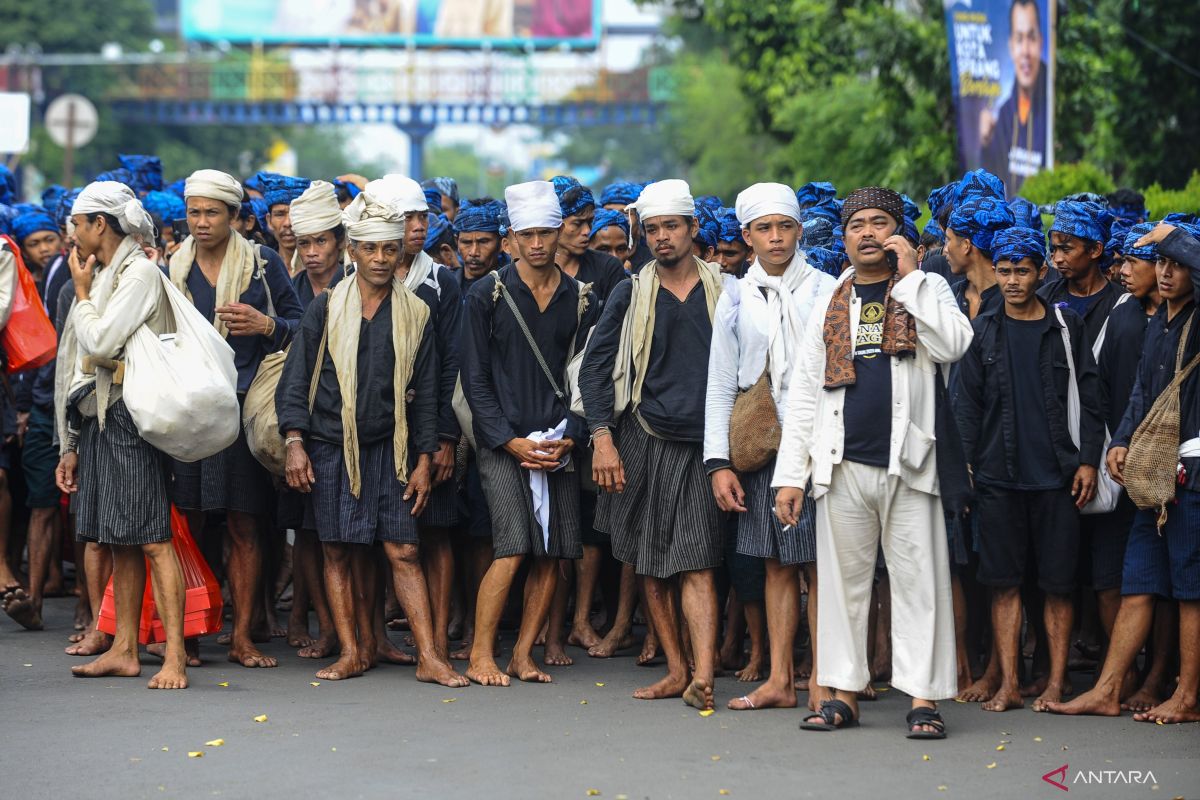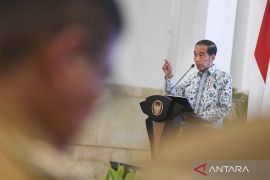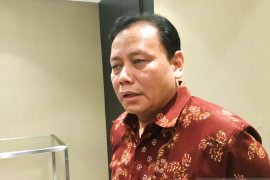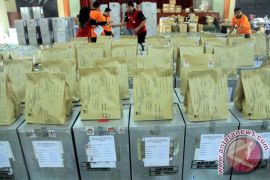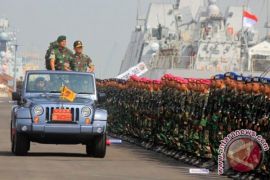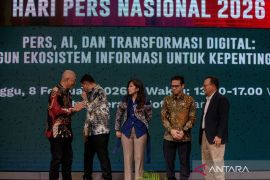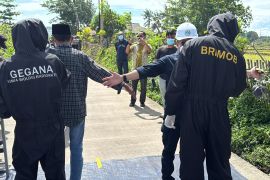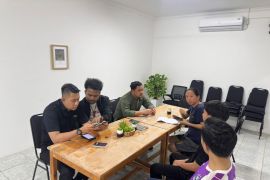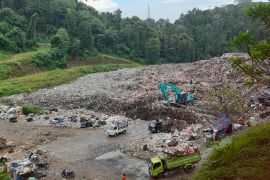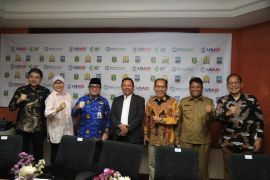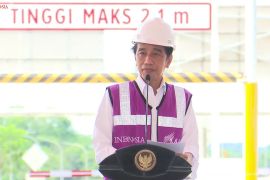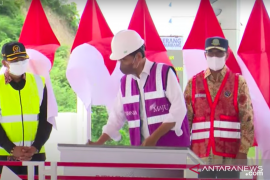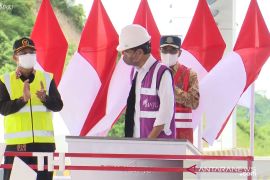Despite not receiving a formal education, they showed up to vote for national leaders and legislative members.
The local customs also allow them to exercise their voting rights at polling stations.
As part of the nation, they must vote for the leaders and should not abstain.
On election day, they were willing to put on hold their tasks, such as farming, to vote and determine the country's next leader.
When questioned about their electoral participation, the Badui community members revealed their political maturity by expressing their keenness to help select the nation's future leadership.
Based on data from one of the voting locations in Badui, the number of residents registered to vote in the area reached 159, with 139 people having cast their votes, or reaching 87.42 percent.
Meanwhile, data from the Lebak District General Election Commission (KPU) showed that the total number of voters in the Badui Indigenous Community Area in the 2024 Presidential and Legislative Election reached 6,078 people, comprising 3,384 male and 2,694 female voters. The election was spread across 27 voting locations, with a participation rate reaching 85 percent.
The high participation of Badui residents in the 2024 Election is inseparable from the massive dissemination of information carried out by various related parties, including the Banten Provincial KPU, Lebak District KPU, and community leaders.
2024 Regional Elections
Based on the General Election Commission Regulation (PKPU) Number 2 of 2024, the election for governor and deputy governor, mayor and deputy mayor, and district head and deputy district head or the 2024 Simultaneous Regional Head Elections (Pilkada) will be held on November 27.
To ensure that the regional election is a success, the Lebak District KPU targets community participation in Badui areas of around 90 percent, or at least equal to the level of participation during the presidential and legislative elections.
To achieve the target of voting participation in the Badui area, the Lebak District KPU has conducted special dissemination of information by paying attention to local cultural values. In addition, the agency respects the local wisdom applied in the Badui community.
All stakeholders are rooting for Badui people’s participation in the regional election. Fortunately, the enthusiasm is also shown by the traditional elders in the Badui Tribe, known as jaro.
They were involved in the election socialization activities and also invited their people to exercise their right to vote by visiting the voting sites on voting day.
During the 2024 presidential election, jaro also encouraged the Badui people to participate in the election.
“We will be voting for a trustworthy leader who can build the nation and improve the welfare of the people,” Jaro Saija stated in February.
The collaboration between authorities and the traditional elders is believed to increase the Badui people’s understanding of regional voting as a form of responsibility to elect a regional leader, ultimately aiming for the common welfare.
Lessons to learn
The Badui tribe is a group of Sundanese indigenous people in the interior of Lebak District, with a population of around 26 thousand. They are one of the groups of people who distanced themselves from the outside world, especially the population in the Inner Badui region.
This tribe is divided into two, namely the Inner Badui Tribe and the Outer Badui Tribe. The life of being at one with nature is a choice they highly uphold, along with the preservation of nature and living side by side in harmony and peace.
The uniqueness of this tribe is a cultural asset that must be protected. Modern society can learn a lot from their philosophy of life, which is steadfast and consistent in maintaining the balance of nature with humans.
Leaders in the area can also gain lessons from the sincerity of the Badui people in living their lives by prioritizing collective balance.
The enthusiasm of the Badui people to participate in this political event should not only be a matter of pride but also serve as a motivation for elected leaders to develop the region and for the welfare of the community, especially the Badui people.
The commitment of the elected regional leader is also a form of appreciation for the Badui people’s efforts to participate in democracy by exercising their right to vote.
Their enthusiasm to participate in this democratic party is also a lesson for other people in Indonesia to partake in the election by visiting the election sites and casting their vote on election day.
The Badui people have also demonstrated an example of helping to create a safe and peaceful election.
Related news: Women urged to tackle money politics during Indonesia's regional polls
Related news: Govt plans to make November 27 regional voting day a national holiday
Translator: Sambas, Resinta Sulistiyandari
Editor: Rahmad Nasution
Copyright © ANTARA 2024
